Nora monologue a doll’s house – Nora’s monologue in Henrik Ibsen’s “A Doll’s House” stands as a pivotal moment in the play, igniting a profound transformation within Nora and leaving an indelible mark on the audience. It is a speech that resonates with themes of self-discovery, societal expectations, and the search for personal fulfillment.
Nora’s monologue is a catalyst for her awakening, as she grapples with the realization of her own agency and the suffocating constraints of her domestic existence. Through her powerful words, she challenges societal norms and exposes the hypocrisy that surrounds her, paving the way for a new era of empowerment for women.
Nora’s Character Analysis
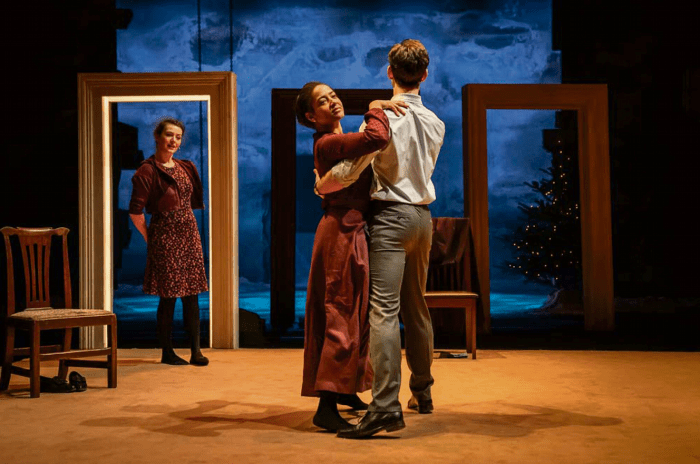
Nora Helmer is a complex and multifaceted character in Henrik Ibsen’s “A Doll’s House.” She is initially presented as a seemingly frivolous and submissive wife, but as the play progresses, her true nature is revealed.Nora’s personality is characterized by a blend of childlike innocence and a deep-seated longing for independence.
She is initially portrayed as a naive and irresponsible young woman, who is completely dependent on her husband, Torvald. However, as the play progresses, Nora’s true strength and determination become evident. She is willing to risk everything to protect her family and to assert her own identity.Nora’s
relationships with other characters in the play are complex and multifaceted. Her relationship with Torvald is initially based on love and trust, but it is gradually revealed that Torvald sees Nora as nothing more than a doll, a plaything to be controlled and manipulated.
Nora’s relationship with Dr. Rank is also complex. Rank is a close friend of the Helmers, and he is secretly in love with Nora. Nora cares for Rank deeply, but she is unable to reciprocate his love.Nora’s transformation throughout the play is one of the most striking aspects of her character.
At the beginning of the play, Nora is a submissive and dependent wife, but by the end of the play, she has become a strong and independent woman. Nora’s transformation is a result of her growing awareness of her own worth and her desire to live a life that is true to herself.
Nora’s Monologue
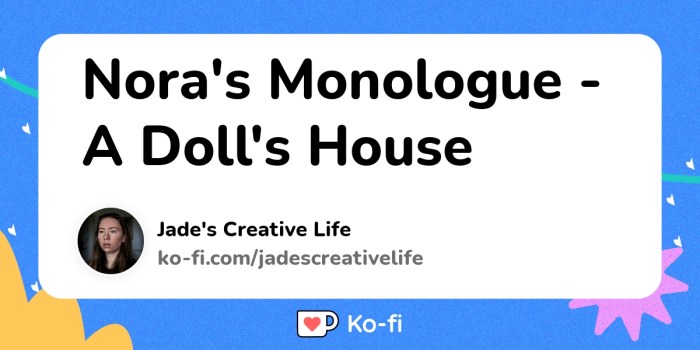
Nora’s monologue is a pivotal moment in Henrik Ibsen’s play, A Doll’s House. Delivered in the final act, it marks a turning point in Nora’s character arc and significantly impacts the play’s narrative and audience.
Context
Nora’s monologue occurs after a series of revelations that shatter her illusions about her marriage and society. She discovers that her husband, Torvald, has been treating her like a child and that her perceived happiness has been built on a foundation of lies and manipulation.
Nora’s monologue in “A Doll’s House” is a powerful and moving speech that reveals her inner turmoil. She speaks about her desire for freedom and independence, and her struggles with the societal norms that have been imposed on her. Interestingly, if we consider the length of her monologue in minutes, we might wonder how many hours it would take to deliver.
For reference, you can check out how many hours is 206 minutes to get a sense of the duration. Returning to Nora’s monologue, it’s clear that her words resonate with audiences today, as they continue to explore the complexities of gender roles and individual identity.
Significance
Nora’s monologue is a powerful expression of her awakening and rebellion. Through it, she articulates her realization of her own individuality and worth. She rejects the societal expectations that have confined her and declares her intention to live a life of authenticity and self-determination.
Impact on the Audience
Nora’s monologue has a profound impact on the audience. It challenges traditional gender roles and societal norms, sparking reflection on the limitations imposed on women in the Victorian era. Her journey of self-discovery and liberation resonates with audiences today, inspiring empathy and admiration for her courage and strength.
Themes Explored in Nora’s Monologue
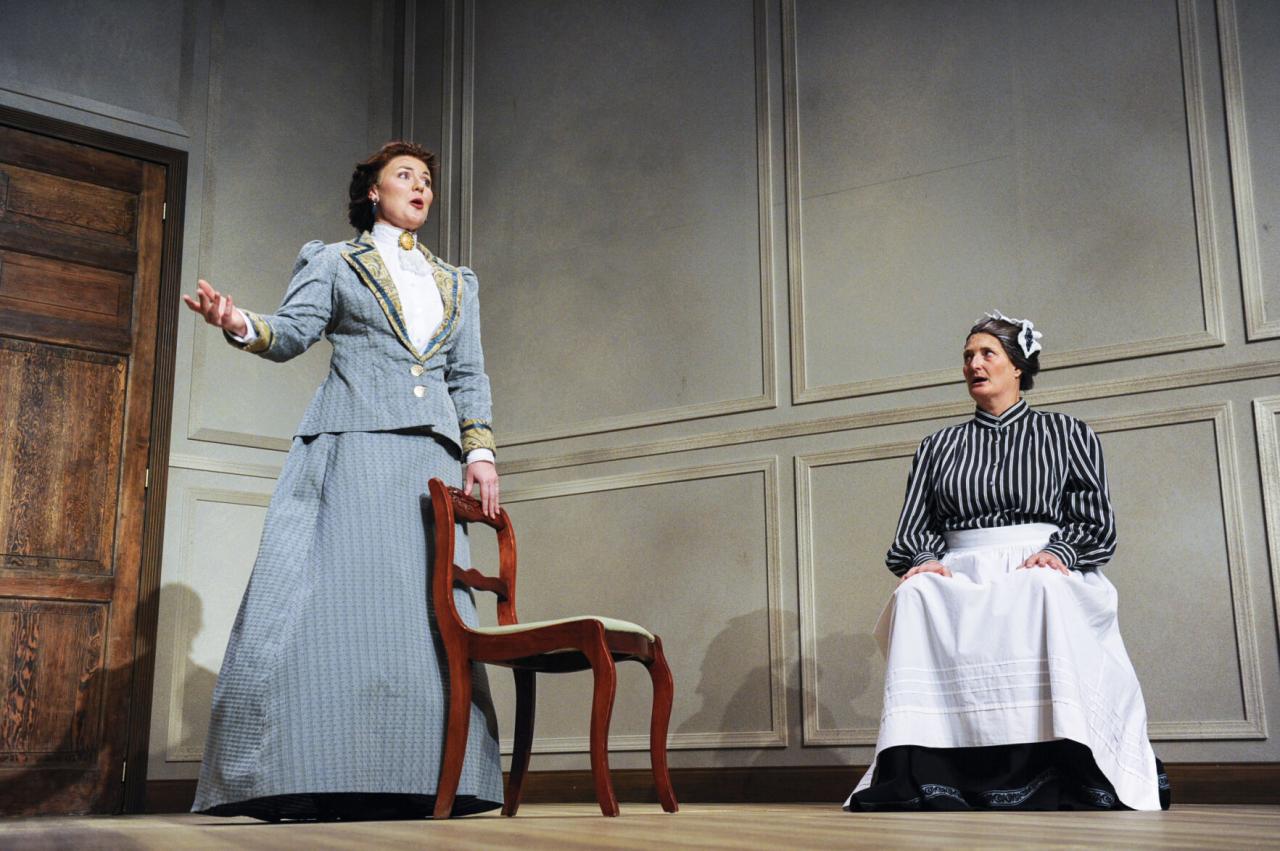
Nora’s monologue in Act 3 of A Doll’s Houseis a pivotal moment in the play. It reveals Nora’s true feelings about her marriage and her life, and it sets the stage for her eventual decision to leave her husband, Torvald. The monologue explores several major themes that are central to the play as a whole, including:
Identity and Self-Discovery
Nora’s monologue reveals her growing sense of self-awareness and her desire to find her own identity. She has spent her entire life playing the role of the perfect wife and mother, but she is beginning to realize that this role is not truly who she is.
Through her monologue, Nora expresses her desire to be free from the expectations of others and to live a life that is true to herself.
The Oppression of Women
Nora’s monologue also highlights the oppressive nature of society towards women in the 19th century. Nora is constantly belittled and condescended to by Torvald, and she is expected to obey his every command. Through her monologue, Nora challenges these societal norms and asserts her right to be treated as an equal.
The Importance of Truth
Nora’s monologue also explores the importance of truth. She has been living a lie for years, pretending to be someone she is not. Through her monologue, Nora comes to the realization that she can no longer live a life based on deception.
She must be true to herself and to others, even if it means facing the consequences.
Ibsen uses a variety of symbols and imagery to convey these themes in Nora’s monologue. For example, the macaroons that Nora eats represent her desire for freedom and independence. The doll’s house itself is a symbol of the oppressive society that Nora is trying to escape.
Literary Devices in Nora’s Monologue: Nora Monologue A Doll’s House
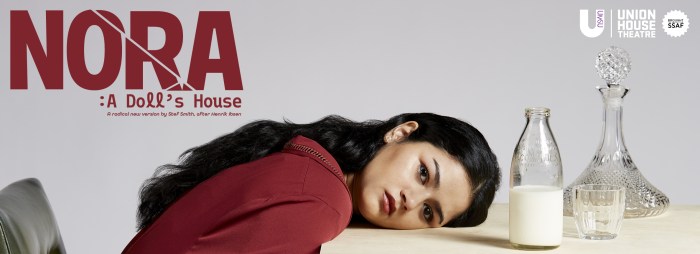
Nora’s monologue is a powerful and moving piece of writing that uses a variety of literary devices to create a powerful impact on the reader or audience. These devices include:
Imagery
- Nora uses vivid imagery to create a strong sensory experience for the reader. For example, she describes the “warm, sunny room” and the “soft, white curtains” of her home, which creates a sense of comfort and security.
- She also uses imagery to describe her feelings of entrapment and suffocation, such as when she says that she feels like a “bird in a cage” or a “doll” that is “played with” by others.
Metaphor, Nora monologue a doll’s house
- Nora uses metaphors to compare her life to other things, such as a “play” or a “dance.” These metaphors help to convey the sense that Nora feels like she is not in control of her own life and that she is merely a pawn in the hands of others.
Symbolism
- Nora’s tarantella dance is a powerful symbol of her desire for freedom and independence. The dance is a wild and passionate expression of her inner self, and it represents her longing to break free from the constraints of her society.
- The macaroons that Nora eats are also a symbol of her rebellion. Macaroons are a forbidden food for Nora, and by eating them, she is defying the authority of her husband and society.
Irony
- Nora’s monologue is full of irony. For example, she talks about how much she loves her husband and children, but her actions show that she is deeply unhappy in her marriage.
- She also talks about how important it is to be honest, but she has been lying to her husband for years about her debts.
Suspense
- Nora’s monologue builds suspense by gradually revealing the truth about her life. The reader is kept in suspense as Nora reveals more and more about her past and her motivations.
- The monologue also builds suspense by foreshadowing the events that will happen later in the play. For example, Nora mentions that she has been thinking about leaving her husband, and this foreshadows the ending of the play, when she actually does leave him.
These literary devices work together to create a powerful and moving monologue that explores the themes of freedom, independence, and self-discovery. Nora’s monologue is a powerful indictment of the patriarchal society of the 19th century, and it continues to resonate with readers and audiences today.
Nora’s Monologue in Performance
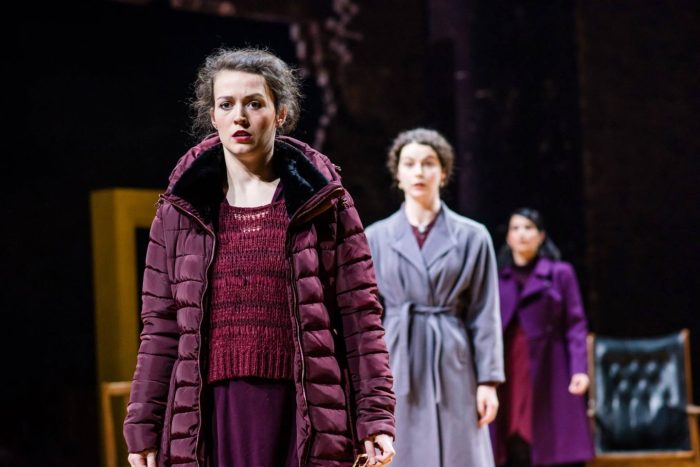
Nora’s monologue is a pivotal moment in Henrik Ibsen’s A Doll’s House, and it presents a unique set of challenges and opportunities for actors. The monologue is an extended speech in which Nora reveals her true feelings about her marriage and her life, and it is a crucial turning point in the play.
One of the challenges in performing Nora’s monologue is its length. The monologue is over 200 words long, and it can be difficult for actors to sustain the energy and emotion necessary to deliver it effectively. Actors must also be able to convey Nora’s complex emotions, which range from anger and resentment to sadness and despair.
Another challenge in performing Nora’s monologue is its context. The monologue is delivered at the end of the play, after Nora has discovered that her husband, Torvald, has been manipulating her and controlling her life. This discovery has a profound impact on Nora, and it is important for actors to convey the sense of betrayal and disillusionment that she feels.
Despite the challenges, Nora’s monologue is also a great opportunity for actors. The monologue is a showcase for an actor’s skills, and it can be a powerful and moving experience for audiences.
Different Interpretations of the Monologue
There have been many different interpretations of Nora’s monologue over the years. Some actors have played the monologue as a passionate and angry outburst, while others have played it as a more subdued and introspective speech. There is no one right way to play the monologue, and the best interpretation will depend on the actor and the production.
One of the most famous interpretations of Nora’s monologue was given by Ingrid Bergman in the 1973 film adaptation of A Doll’s House. Bergman played the monologue with a quiet intensity, and she conveyed Nora’s pain and anger with great power.
Another notable interpretation of the monologue was given by Cate Blanchett in the 2017 stage production of A Doll’s House. Blanchett played the monologue with a more fiery and passionate approach, and she brought out the anger and resentment that Nora feels towards her husband.
The Impact of Staging and Direction
The staging and direction of Nora’s monologue can have a significant impact on its delivery. The monologue can be played in a variety of different ways, and the director’s choices can help to shape the meaning of the speech.
For example, the monologue can be played in a realistic or a more stylized way. In a realistic production, the monologue might be delivered in a simple and straightforward manner, with the actor focusing on conveying Nora’s emotions. In a more stylized production, the monologue might be delivered with more movement and theatricality, with the actor using their body and voice to create a more dramatic effect.
The director’s choices can also affect the meaning of the monologue. For example, the director might choose to have Nora deliver the monologue directly to the audience, or they might have her deliver it to another character. The director’s choice will affect the way that the audience interprets the monologue.
Commonly Asked Questions
What is the significance of Nora’s monologue in “A Doll’s House”?
Nora’s monologue is a turning point in the play, as it marks her realization of her own agency and the stifling nature of her domestic existence. It sets in motion her journey towards self-discovery and empowerment.
How does Nora’s monologue challenge societal norms?
Nora’s monologue challenges societal expectations of women by exposing the hypocrisy and double standards that exist within the patriarchal society of her time. She questions the traditional roles assigned to women and asserts her right to individuality and self-expression.
What is the impact of Nora’s monologue on the audience?
Nora’s monologue resonates with audiences by its universal themes of self-discovery, societal expectations, and the search for personal fulfillment. It inspires empathy and encourages audiences to reflect on their own lives and the choices they make.
